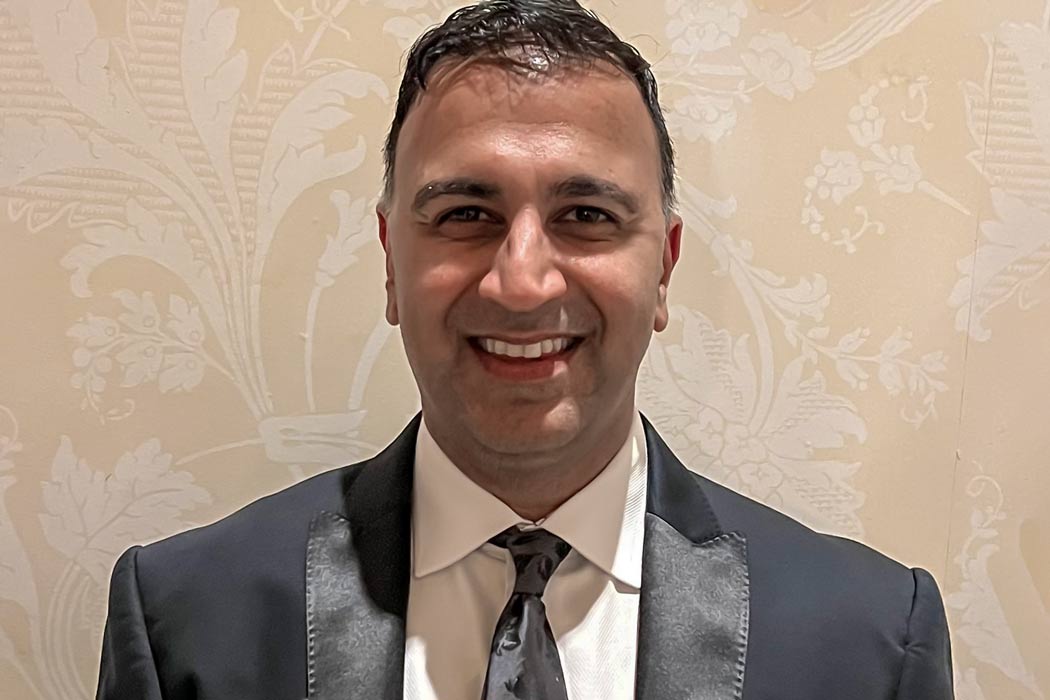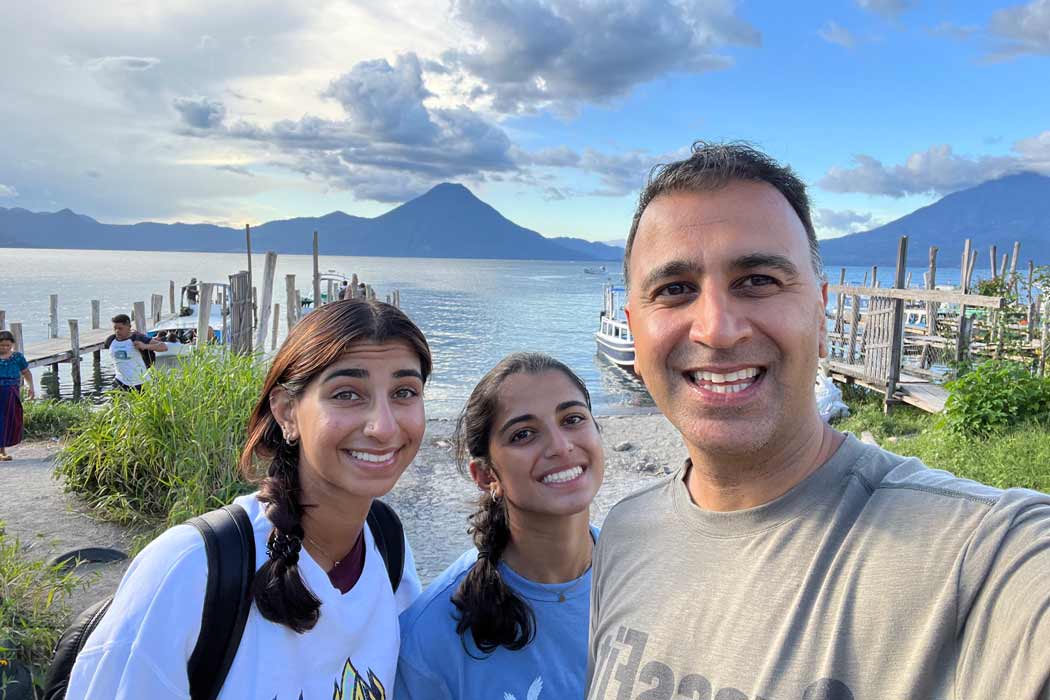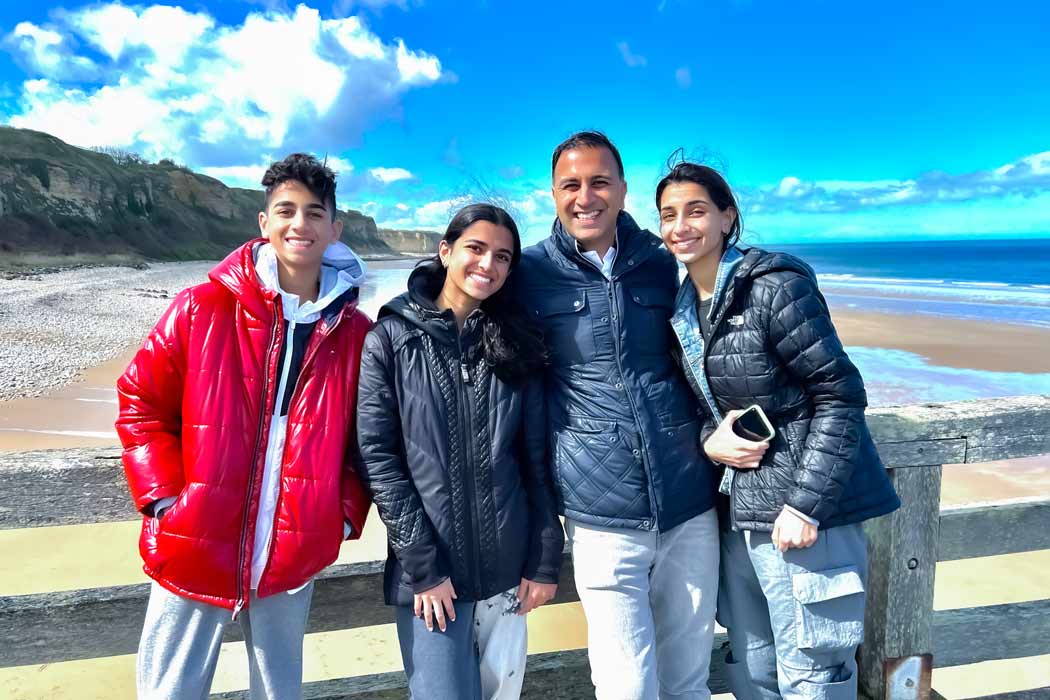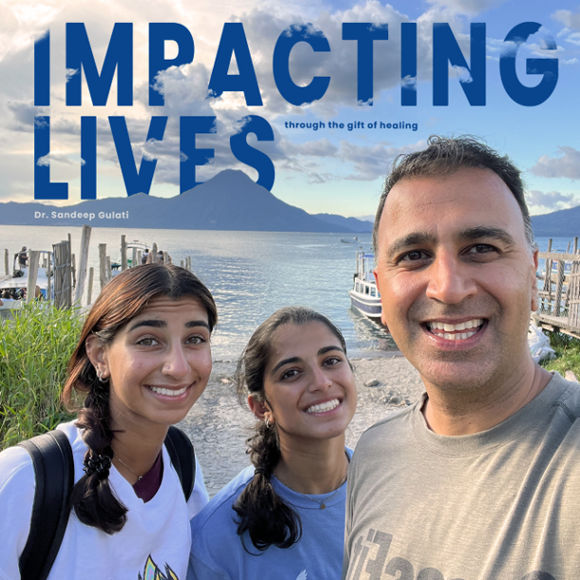CATEGORIES
Health and Wellness | People We Admire | Social ImpactOverview:
- Dr. Sandeep Gulati believes that reflecting is a crucial part of the self-understanding journey.
- By knowing his passion and gravitating towards it, Dr. Sandeep Gulati shares his story of passion intertwined with one’s happiness.
- Dr. Sandeep Gulati believes that whatever field you are in, make sure to fully embrace it each step of the journey.
- As Dr. Sandeep Gulati would say that big changes come from small achievements for every individual.
1. Can you briefly introduce yourself and talk about how you became the person you are today?
I’m a dad of three children aged 18, 16, and 15. I am also a physician, a neurologist, and a dreamer. I would like to be a transformer. I’m a second-generation immigrant in the U.S. My parents moved here from India when they were in their 30s.
I was born and raised in New York. As a child, I was in between two worlds. I had my original roots, but I had also assimilated into American society. I grew up in a predominantly white neighborhood and was one of the few Indians in school. Though I had a lot of love, I remember not having much confidence. Things got better when I went to college, got more friends and a little more freedom, and I started finding my feet. Your family and friends are your first teachers but, at the end of the day, life experience is where you learn the most from.
I gravitated towards Neurology as I found it fascinating, which motivated my decision to attend medical school. The mind controls the body; the body controls the mind. It is an amazing connection and studying the brain is captivating.
Part of my journey now is trying to work through the idea of loving my career and balancing my personal and professional life. This is where my life started coming together, as I realized there were so many well-being issues in society. Neurologists are gatekeepers, as we have a holistic perspective that includes physical and mental health. I have come to love my patients as I get to learn from them while educating them, which is a guiding force.

2. Did you have any mentors who supported you in becoming a doctor or otherwise, who have been the most influential people in your life?
My parents were probably my first mentors in the sense that I learned from both what they did well and what they didn’t. They taught me diligence, responsibility, and commitment, which are important work ethics.
However, well-being is not always taught by parents, siblings, friends, or teachers. It is an internal journey. During that journey, I learned to understand people better. I started reflecting when I went on some retreats and got introduced to meditation and yoga. I found mentors who pushed me to reflect more about my roots, goals, dreams, and aspirations. I realized that the answers don’t always have to be what society wants. They should be what I want.

3. Do you have some tips for people, especially the younger ones who are passionate about pursuing medical-related fields?
Medicine is a great field, but make sure you’re doing it for the right reason. There are a lot of accolades and social respect that comes with it, but that’s not enough. Know your passion and gravitate towards what makes you feel good and happy. Then immerse yourself in it and get as much exposure as possible. The classroom is one place, but reality and the concrete jungle, where challenges are, is the best place to learn from.
For instance, when I did my residency in our training phase, after medical school, I chose the hardest and busiest place because I knew I would learn the most even if I wouldn’t stay there. I knew that if I absorbed that early on in my career I would be well prepared for difficulties that I would face in the future.
Enjoy your chosen path and understand that it doesn’t have to be perfect. Each step is valid. Each step is real. Each step needs reflection. The destination isn’t always what’s most important—the journey matters the most. When things don’t go your way, it’s still where you’re supposed to be at that point of time. That’s the spiritual journey: no matter where you go, whatever field you go into, embrace it. This will make your livelihood much more fulfilling.

4. What does a typical day in your life look like? How do you maintain a balance between your work and personal life?
That changes over time. Right now, I start my day with exercise or meditation. This helps me reset my balance and focus, and give my intentions to what I want to materialize. Giving myself half an hour in the morning to reflect with my favorite cup of tea, looking at the sun, going for walks, and exercising is super important to me.
Then, I’ll go to my office or the hospital, where I see up to 25-30 patients a day. This involves connecting with people. It’s a bilateral relationship as we all learn from each other. The gift of healing is that you can really impact people’s lives. I get home by seven or nine o’clock. Afterwards, I try to spend time with my family.
I’m head of the medical board and also part of the Academy of Neurology. With a busy schedule, there are times when you have to say no to people if it interferes with maintaining a healthy balanced lifestyle. While you can do it all, in the end you just have to prioritize your well-being, which involves sacrificing and compromising some things.

5. What is your advice for those trying to merge social impact and a medical career?
It’s tough because we practice with profound luxury in some countries, like the U.S. It’s almost easy to worry about well-being when your stomach is full, there’s power on, and water running. The reality is that in other parts of the world, people don’t have these things that we are so used to. The idea is that these basic premises of life have to be met. The way we should think about this is that even if we save one person’s life, even if it’s one in a billion, we’ve altered and achieved goodness in changing an individual’s life. Every small achievement is still valuable, which often creates momentum in making big changes.
Conclusion:
Dr. Sandeep Gulati believes that a journey does not have to be perfect, nor is it all about the destination. Embracing every step of the way because that is exactly where you are supposed to be and what you need to learn is what he lives by. In Dr. Sandeep Gulati’s words, gratification is knowing what makes you happy and gravitating towards it is a bliss in disguise.


